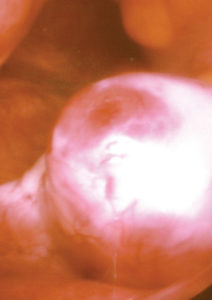How Long Does Ovulation Last?
If you’re trying to get pregnant, when and how long you ovulate is a big deal. For most women, ovulation seems practically like a mystery. They can’t see it or feel it and – in most cases – have no idea it’s happening, unless they are making conscious efforts to get the details of their own personal cycle in order to conceive.
Ask the average woman how long ovulation lasts and chances are their answer will be at least a little off. Most women know the basics of how their reproductive system works but few know the specifics…until it’s really important to them.
So…when does ovulation happen?

Doctors describe the normal menstrual cycle as anywhere between 21 and 35 days. Some women have menstrual cycles that run like clockwork; others are much more sporadic. Experts agree that, in general, ovulation occurs about 14 days before the commencement of one’s period.
Ovulation happens when a woman’s luteinizing hormone experiences a surge. During that time, a mature egg (and, rarely, more than one egg) will leave the uterus and travel down into the Fallopian tubes. It can survive for 12-24 hours before it disintegrates into the uterine lining and is shed with the woman’s monthly period.
So, ovulation occurs only one time during each menstrual cycle and generally lasts from 12-24 hours. Wow, only 12-24 hours? Does that mean that’s the only window each month during which a women can get pregnant?
Not at all! A woman’s fertile window generally lasts about 6 days. Here’s why.
Sperm can live inside the female reproductive track for up to 5 days. That means the woman can get pregnant via intercourse that happens anywhere from about 5 days before ovulation until 24 hours afterwards. The greatest chance of getting pregnant is on the day of ovulation or during the three days prior.
How can you gauge your ovulation?
At one time, figuring out when ovulation occurs was guesswork. But it hasn’t been that way for a long time. There are countless over-the-counter products available that measure ovulation, and most are quite reliable. Ovulation predictor kits and other kinds of fertility monitors work very well and can certainly help the user zero in on their ovulation time for a higher chance of getting pregnant.
Women can also keep track of their basal body temperature, which rises slightly during ovulation, or can examine their cervical mucus, which becomes stretchy and takes on a texture of egg whites during ovulation.
Of course, there are diseases and conditions that can affect ovulation and/or keep it from happening altogether. Obviously, if a woman does not ovulate, she can’t conceive, which means she’ll need to visit a fertility specialist who can diagnose the problem and recommend treatments that can move her forward towards a potential pregnancy.
Go back